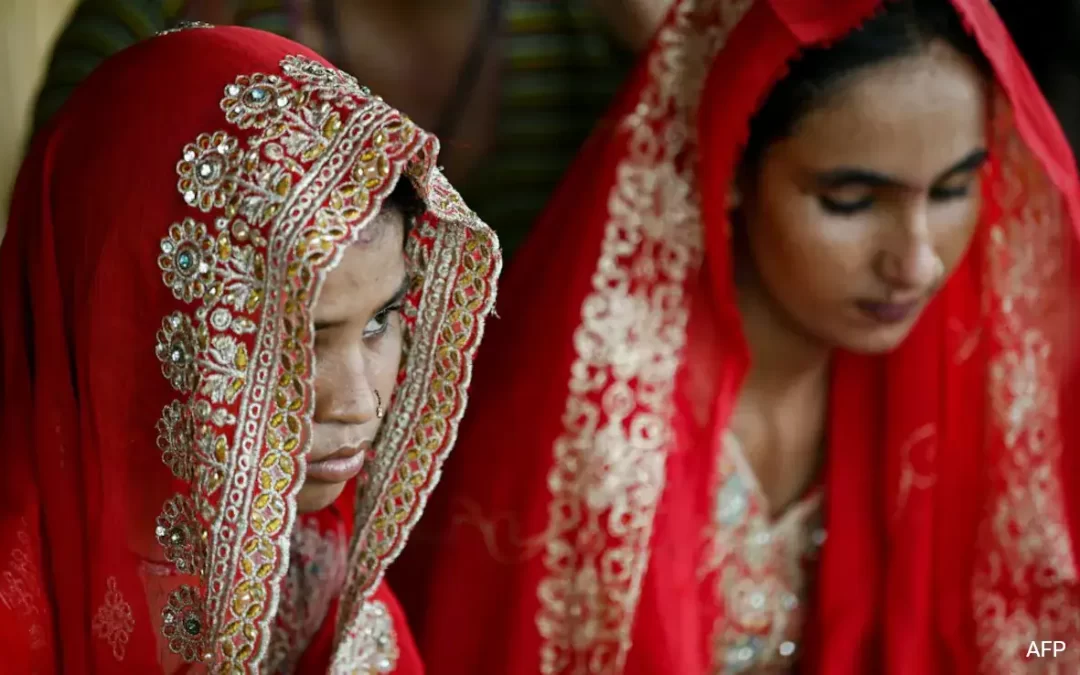Child marriage remains a pressing issue in many parts of the world, with devastating consequences for young girls who are forced into early unions. While it is often justified by cultural, economic, or social factors, child marriage is a form of gender-based violence that significantly increases the risk of domestic abuse, emotional trauma, and lifelong disadvantage.
The Reality of Child Marriage
According to UNICEF, an estimated 12 million girls are married before the age of 18 every year. In some cases, these marriages are arranged due to poverty, where families believe marrying their daughters off early will relieve financial burdens. Other times, it is driven by traditions that dictate that girls must marry young to uphold family honor.
However, these child brides are often denied education, independence, and a choice in their own future. They enter marriage without full knowledge of their rights, making them more vulnerable to abuse.
How Child Marriage Leads to Domestic Abuse
1. Unequal Power Dynamics
When a young girl is married to an older man, there is an inherent power imbalance. The husband, often much older and more experienced, holds control over finances, decision-making, and household rules. This dynamic makes the child bride dependent and powerless, unable to resist demands or seek help.
2. Increased Risk of Physical and Emotional Abuse
Studies have shown that child brides are at a much higher risk of domestic violence. Many face physical, sexual, and emotional abuse at the hands of their husbands or in-laws. They are often expected to obey without question, and any resistance may result in beatings, marital rape, or psychological torment.
3. Limited Legal Protection
In countries where child marriage is still practiced, legal protections for young brides are weak or nonexistent. Many girls do not even realize that they have rights or that what they are experiencing is abuse. In some cases, authorities may not take their complaints seriously, leaving them trapped in abusive marriages.
4. Lack of Education and Economic Dependence
Child marriage frequently results in girls dropping out of school, limiting their opportunities for self-sufficiency. Without education or job prospects, they become completely financially dependent on their husbands, making it even harder for them to escape abusive situations.
5. Early Pregnancy and Health Risks
Many child brides are forced into early pregnancies, which carry severe health risks. Their bodies are often not ready for childbirth, leading to complications such as maternal mortality, stillbirths, or obstetric fistula. In abusive marriages, these young mothers also face the added burden of caring for children while enduring violence.
The Psychological Toll on Child Brides
The trauma of child marriage and domestic abuse extends beyond the physical. Many survivors struggle with severe depression, anxiety, and post-traumatic stress disorder (PTSD). The constant fear, isolation, and lack of freedom take a toll on their mental well-being, often leading to suicidal thoughts or self-harm.
What Can Be Done to Stop Child Marriage and Domestic Abuse?
1. Strengthening Laws and Policies
Governments must enforce strict laws banning child marriage and ensure that violators face legal consequences. Minimum marriage age laws must be upheld, with no exceptions based on parental consent or religious traditions.
2. Empowering Girls Through Education
Education is one of the most powerful tools to combat child marriage. When girls stay in school, they are more likely to delay marriage and gain the skills needed to become financially independent.
3. Providing Safe Spaces and Support
Communities and NGOs must provide shelters, legal assistance, and counseling for girls escaping child marriages. Many victims have nowhere to turn, so having safe spaces where they can seek help is crucial.
4. Changing Cultural Norms and Awareness
Efforts must be made to challenge cultural traditions that normalize child marriage. Through awareness campaigns, community discussions, and education, societies can gradually shift toward valuing girls’ rights and futures.
5. Engaging Men and Boys
Men and boys play a vital role in ending child marriage. By educating young men about gender equality and healthy relationships, we can reduce the likelihood of them becoming perpetrators of abuse. Fathers and brothers can also act as allies by refusing to support forced marriages within their families.

